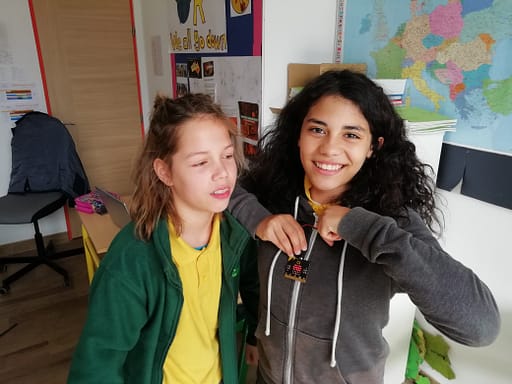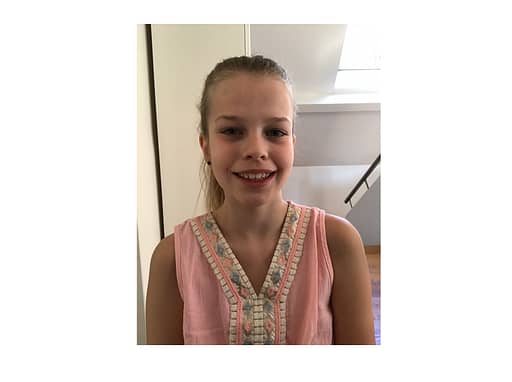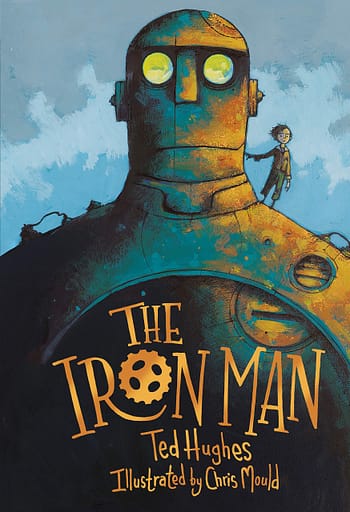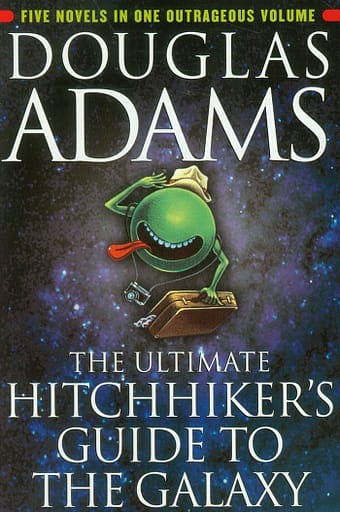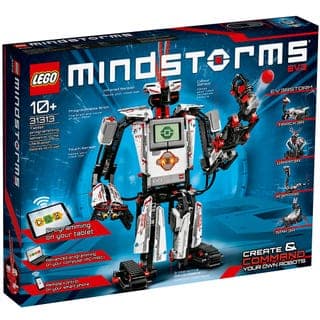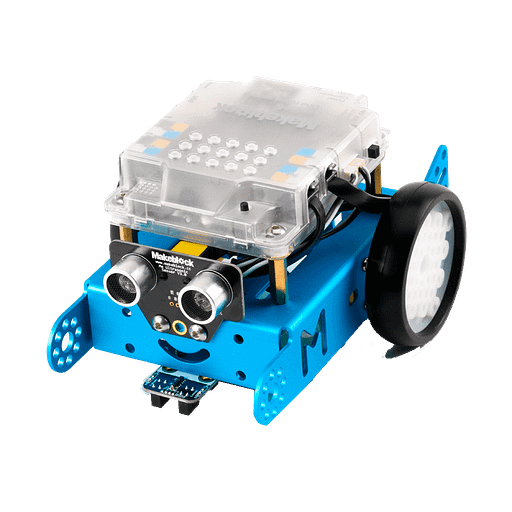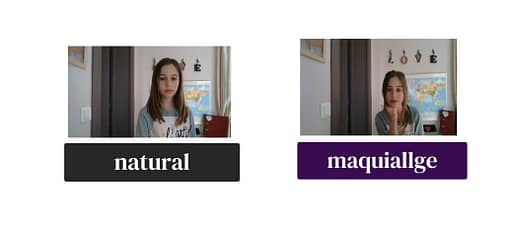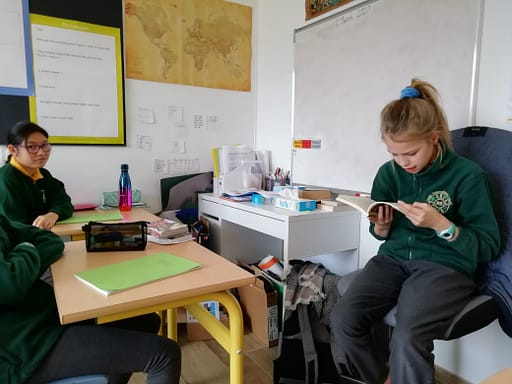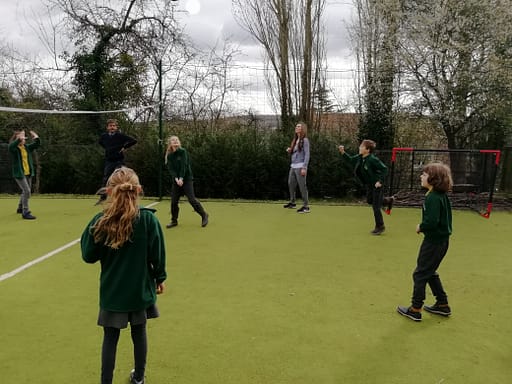In school – whether at school or at home!
Main Term Theme: Robots
Sub Term Theme: Cosmetics
Bonus Term Theme Thrust Upon Us: COVID-19
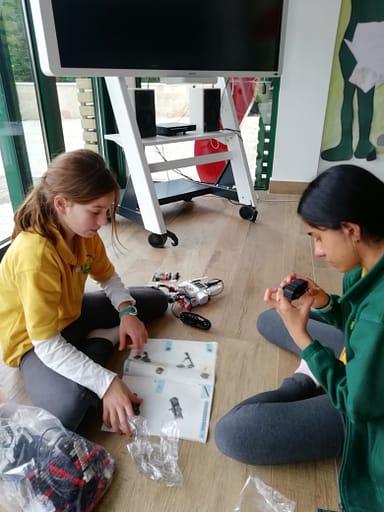
Elms building a Lego Mindstorm robot 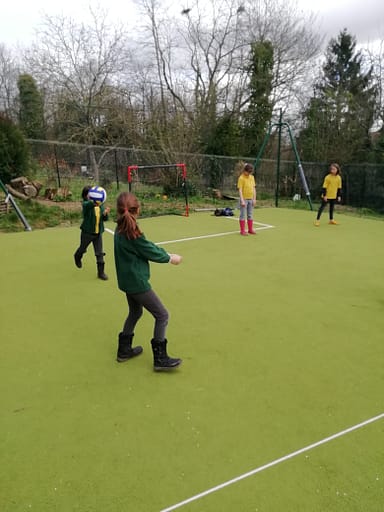
Sport of the term – Volleyball
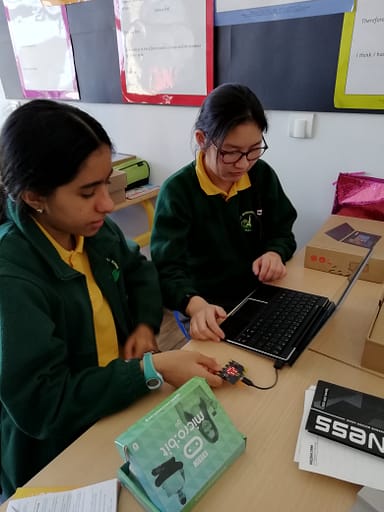
Elms programming BBC Microbits 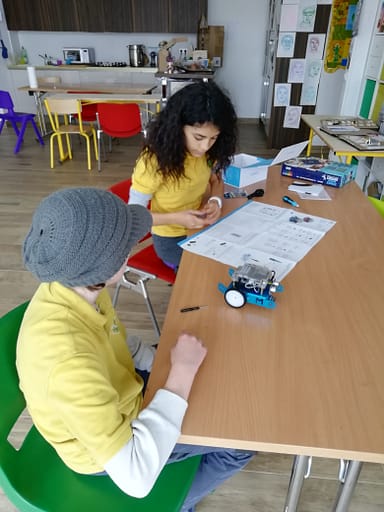
Elms building an MBot
Literacy – Robots in Literature

Learning Outcomes for Elms in Literacy:
- Read articles, watched videos, and learned about different types of robots currently in existence.
- Presented in front of the class about a robot they had independently researched.
- Learned about how robots have been represented in science fiction, such as Stanley Kubrick’s HAL 9000 character from 2001: A Space Odyssey (1968).
- Were introduced to classical science fiction literature. Pupils either read The Hitchhiker’s Guide to the Galaxy by Douglas Adams (1979) or The Iron Man by Ted Hughes (1968).
- Wrote a story about a picnic using literary techniques such as imagery or similes.
- Wrote a news article written in a factual style.
- Wrote a book review highlighting major themes of the book without revealing pertinent information.
- Created a song related to their book.
- One Elm read and analysed the novel Fever: 1793 by Laurie Halse Anderson and compared it to the Coronavirus pandemic.
- Practised identifying and properly conjugating the three different conditional tenses.
- Practised direct speech and reported speech.
Student work sample:
Y elps off pain from the sickness,
E nding life is a horrible business.
L ife was shredding
L ots of poor lives begging
O ff to the grave, spirits will fly
W e sure hope this will soon go by!
F irst from the bloodstream, to the liver,
E veryone desperately trying to be clean.
V ictoriously conquering the plague,
E veryone could relate,
R isking the horrible fate.
ICT – Computer Programming and Robots
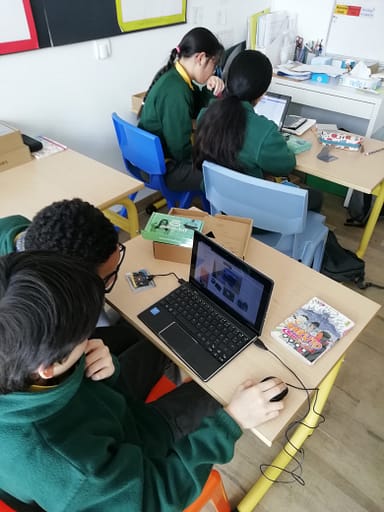
Programming 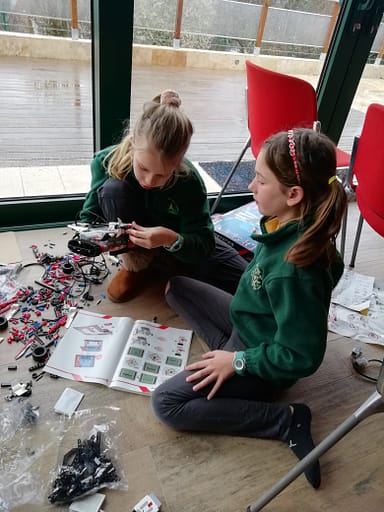
Building 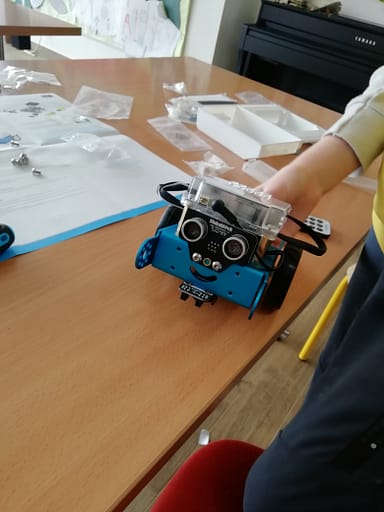
Robots
In ICT, pupils built programmable robots and learned basic programming (movement, speech) through the program Scratch.

Additionally, pupils made games and icons using BBC Microbits.
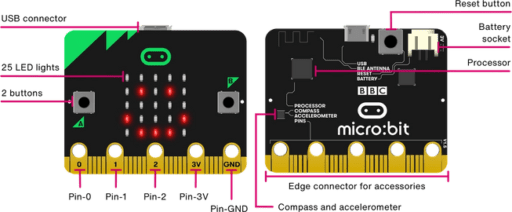
History (in English and French)
Robotics – Communication Technology – Cosmetics – COVID-19
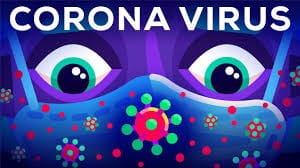
Living History – The pandemic of 2020 was a surprise addition to our history unit.
Pupils learned about the following topics in history class in either French or English:
- Different methods of communication (technological development and body language interpretation).
- Advances in artificial intelligence as seen in the triumph of an IBM computer Deep Blue against the Chess Grandmaster Garry Kasparov in 1997.
- The Coronavirus, how it works, its place in history and its vast impact on human society.
- The history of cosmetics and its meaning in Ancient Egypt, Ancient Greece, Ancient Rome and today.
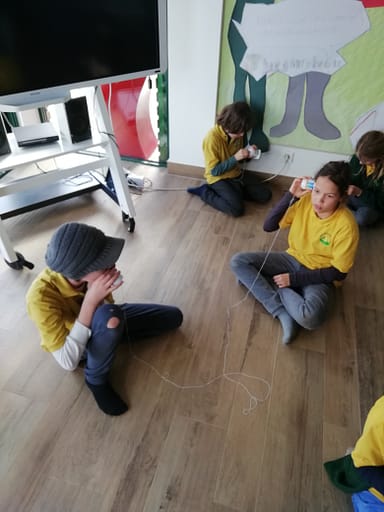
Pupils creating telephones through cups and string.
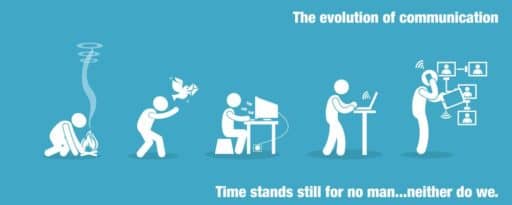
Why do women wear makeup?
Pupil response: Many cultures use makeup to look more attractive and to change or preserve their appearance. It can make them feel more confident. Women also put it on to express who they are.
Why did ancient peoples wear make-up?
To protect their face from the sun or their eyes from infections and insects.
Also, rich people wanted to show how powerful they were because poor people didn’t use make-up (or it was at least of a lower quality).
Why is advertising and marketing important for cosmetics?
Pupil response: People advertise makeup to gain a profit. Charles Revson showed people lipstick and nail polishes that were the same color as other makeup people had. This made him a lot of money, as it became popular. People also go for things that are more expensive because they tend to be in higher quality. For example, say there were 2 eye shadows: one for $8, and one for $3. If a person sees both, they go for the $8 eye shadow.

